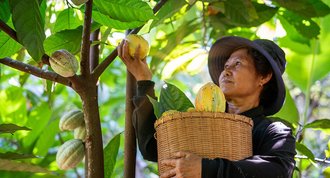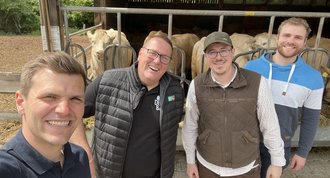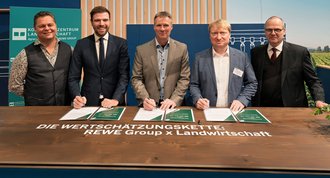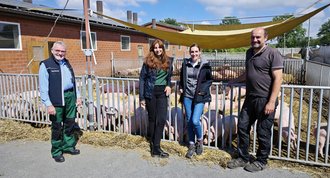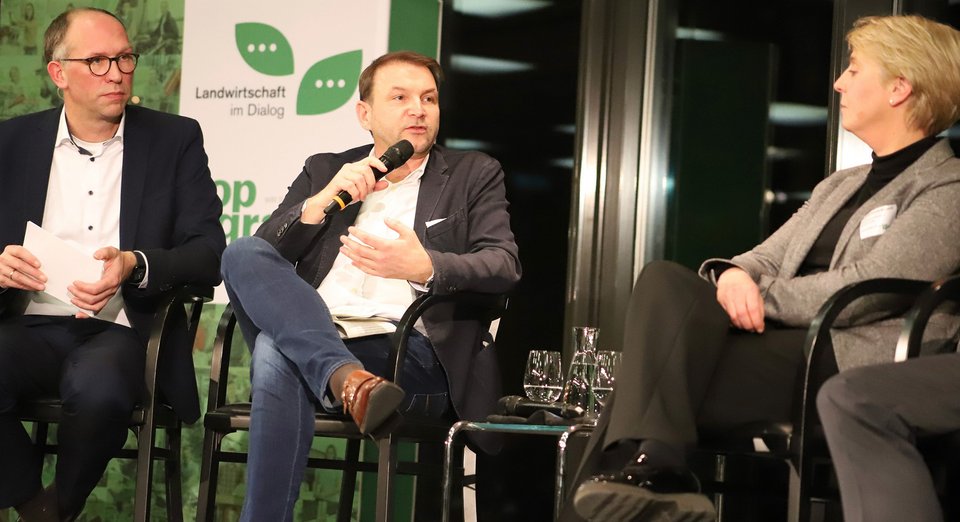
Everything, all the time and cheap to boot - that was the credo of consumers in Germany for a long time. Last year in particular put an end to this in some respects. Since then, the question of secure supply chains and rising prices has been on the agenda. REWE Group Management Board member Hans-Jürgen Moog and Clemens Bauer, Head of Marketing at REWE, discussed these issues with the agricultural sector in two panel discussions organised by the trade magazine topagrar in the run-up to the Green Week.
One key question was how big the problem with supply chains in the retail sector actually is at the moment, given some of the gaps on the shelves. In this context, Hans-Jürgen Moog made it clear that delivery reliability is not the reason for this: "If you see empty shelves at the moment, it's not because of hoarding, but because we can't agree prices with some large multinationals. These suppliers are exaggerating their demands. And because we can't come to an agreement with them, they no longer supply us. That's why the shelves are sometimes empty."
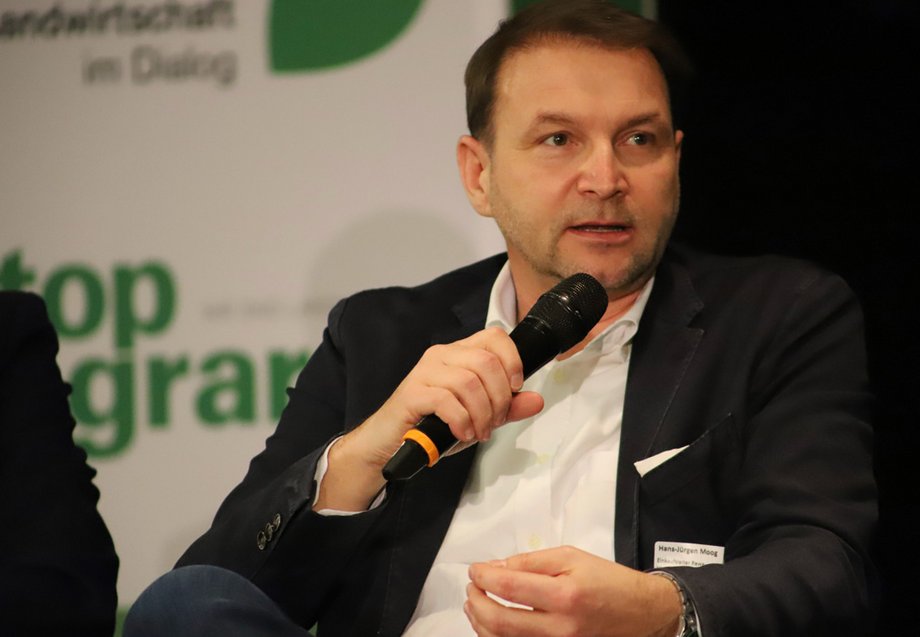 Hans-Jürgen Moog © topagrar
It is obvious that this cannot be desirable for retailers. With regard to the agricultural representatives, Moog therefore emphasised that REWE Group, as a cooperative, thrives on diversity and therefore has a very clear focus on local and regional relationships: "For years, our purchasing strategy for fruit and vegetables has been local before regional before national before international. National and short supply chains are an advantage in times of crisis and fulfil the wishes of consumers. Wherever possible, we favour local produce. We believe in a strong German agricultural sector. Wherever we have a direct relationship with our producers, we always find solutions on an equal footing. However, the products must of course be available in sufficient quality and quantity so that we can meet demand."
Hans-Jürgen Moog © topagrar
It is obvious that this cannot be desirable for retailers. With regard to the agricultural representatives, Moog therefore emphasised that REWE Group, as a cooperative, thrives on diversity and therefore has a very clear focus on local and regional relationships: "For years, our purchasing strategy for fruit and vegetables has been local before regional before national before international. National and short supply chains are an advantage in times of crisis and fulfil the wishes of consumers. Wherever possible, we favour local produce. We believe in a strong German agricultural sector. Wherever we have a direct relationship with our producers, we always find solutions on an equal footing. However, the products must of course be available in sufficient quality and quantity so that we can meet demand."
And further: "We also say quite clearly: it is not acceptable for conflicts to be carried out on the backs of farmers. That's why we want to do our bit to improve the situation - wherever it is possible for us to make a contribution. Hence my appeal: Let's break new ground together, let's give up old prejudices, there must be no mental barriers to sustainable cooperation. We have great producers in Germany and should make better use of this strength. I am convinced that we need systematic changes in many areas and that we need to rethink many things without taboos. This applies to supply chains as well as agriculture. We have set up the Competence Centre for Agriculture with this form of cooperation in mind."
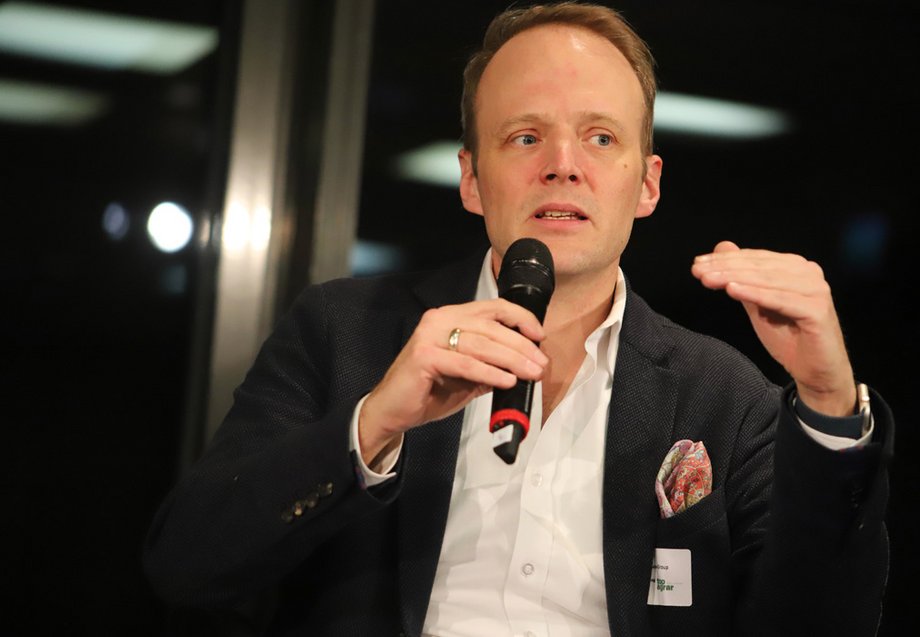 Clemens Bauer © topagrar
Clemens Bauer followed on directly from this in the panel discussion on the topic of "Food price explosion". Even if price sensitivity is increasing due to inflation, it should not be forgotten that people are concerned about climate change and that there are still consumers who are willing to pay more for regional products. Consumer values such as Sustainability remain, says Bauer, and this is also reflected in the fact that customers have a strong interest in buying regional products.
Clemens Bauer © topagrar
Clemens Bauer followed on directly from this in the panel discussion on the topic of "Food price explosion". Even if price sensitivity is increasing due to inflation, it should not be forgotten that people are concerned about climate change and that there are still consumers who are willing to pay more for regional products. Consumer values such as Sustainability remain, says Bauer, and this is also reflected in the fact that customers have a strong interest in buying regional products.
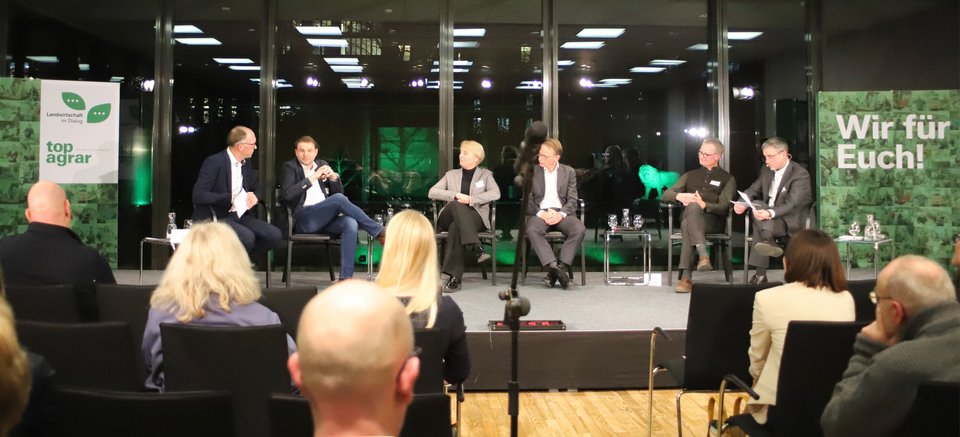
In the run-up to the Green Week in Berlin, the agricultural trade magazine topagrar organised discussion rounds on the topics of "Security in the supply chain" and "Price explosion - how do consumers react". In this context, Marcus Arden and Guido Hörner from topagrar spoke with REWE Group Management Board member Hans-Jürgen Moog, Oliver Sitar, Head of Unit at the EU Commission, Deputy Director-General of the Directorate-General for Agriculture and Rural Development, Susanne Schulze Bockeloh, Vice President of the German Farmers' Association and Hubert Heigl, President of Naturland e. V. about the supply chain.
In addition to Clemens Bauer, Management Director Marketing REWE, Prof. Thomas Vogler, TH Ingolstadt, Professor of Retail Management, Retail Marketing and Retail Controlling, Michaela Schröder, Head of Consumer Protection at the Federation of German Consumer Organisations, discussed the topic "Price explosion in food".
Click here for the recording of the livestream.

